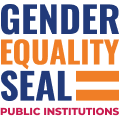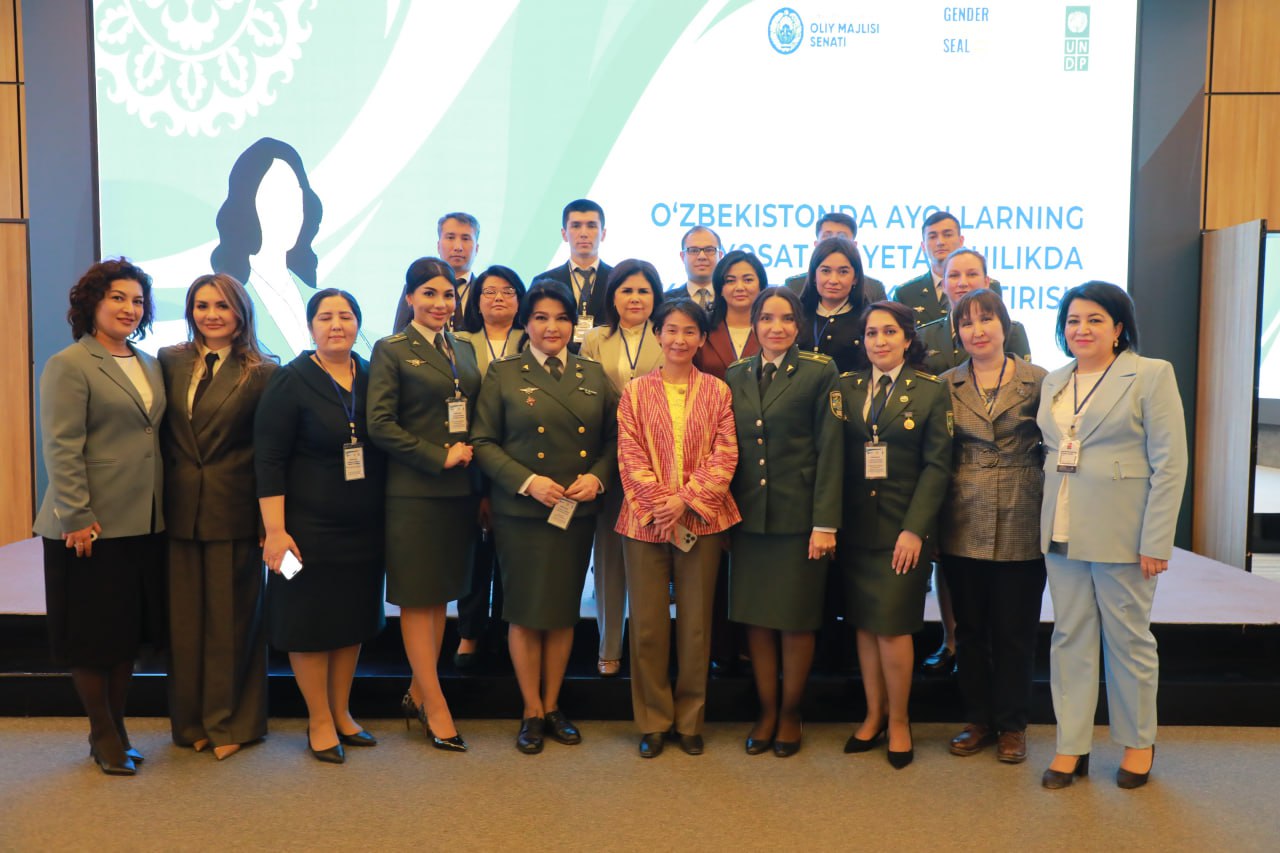In recent years, Uzbekistan has embarked on a transformative journey to promote gender equality and empower women across all sectors of society. Anchored in progressive legislative reforms and a renewed national commitment, the country has updated its Constitution, affirming the state’s commitment to ensuring equal rights and opportunities for women and men in public and state affairs, enacted the Law on Guarantees of Equal Rights and Opportunities for Women and Men (2019), and launched the National Gender Strategy 2021–2030. These milestones reflect Uzbekistan’s commitment to ensure equal representation of women in politics, leadership, and decision-making – paving the way for a more inclusive and equitable future. However, despite these efforts, women face structural challenges and remain widely underrepresented especially in executive, judicial, and public sector roles. Breaking these barriers and accelerating progress requires systemic change, institutional commitment, and collective action.
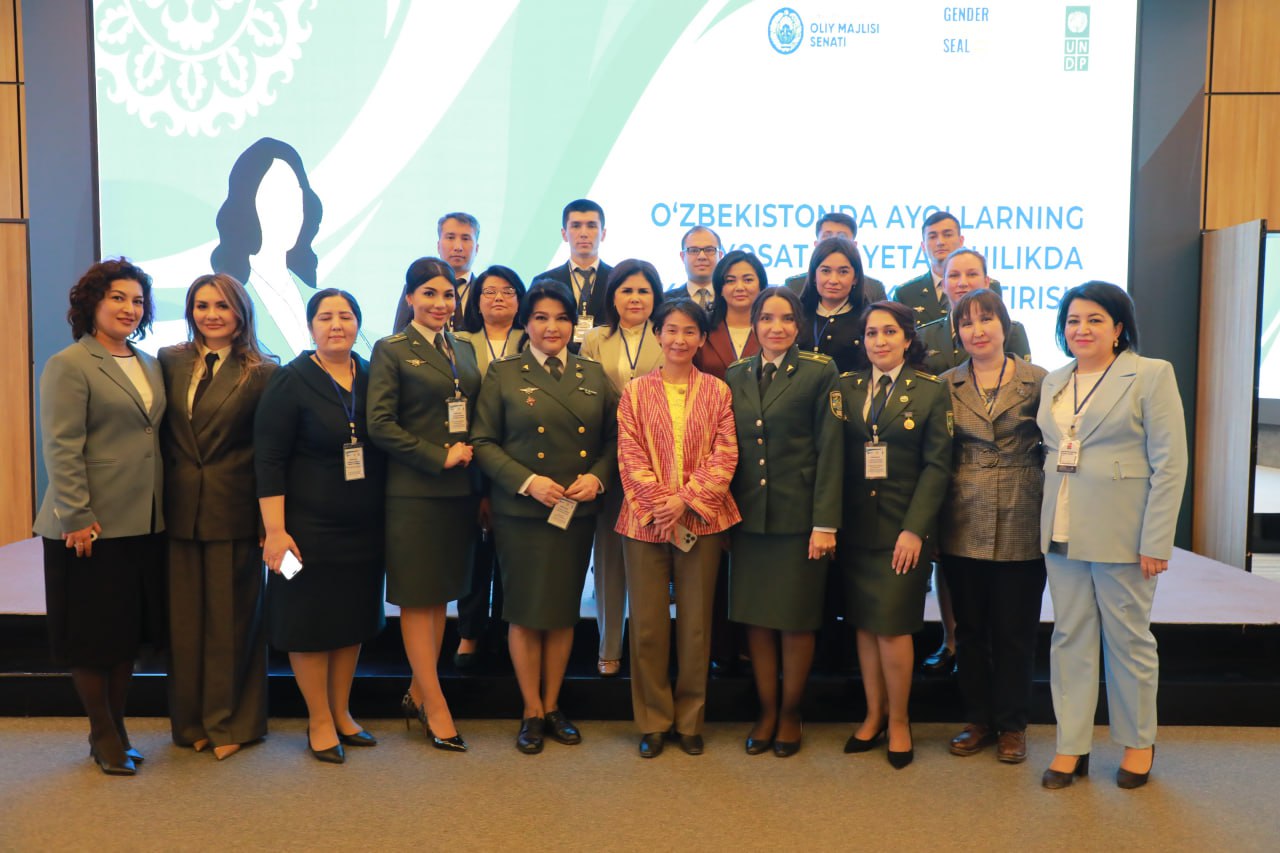
To accelerate progress toward women’s full political participation, the Senate of the Oliy Majlis of the Republic of Uzbekistan and UNDP convened a high-level dialogue on March 17th, bringing together key stakeholders to explore both the opportunities and the persistent barriers to women’s involvement in politics – particularly within the parliament, executive power, and judiciary. Among the initiatives showcased during the event was the Gender Equality Seal for Public Institutions: A powerful UNDP flagship program designed to support public institutions in embedding gender-responsive approaches across public policies, services and organizations. In Uzbekistan, the State Customs Committee and the Ministry of Finance have already stepped up to the challenge and committed to implementing the Seal. This experience has shown that institutional transformation is critical to advance women’s full and meaningful participation in public governance, across all branches of power: executive, legislative and judiciary.
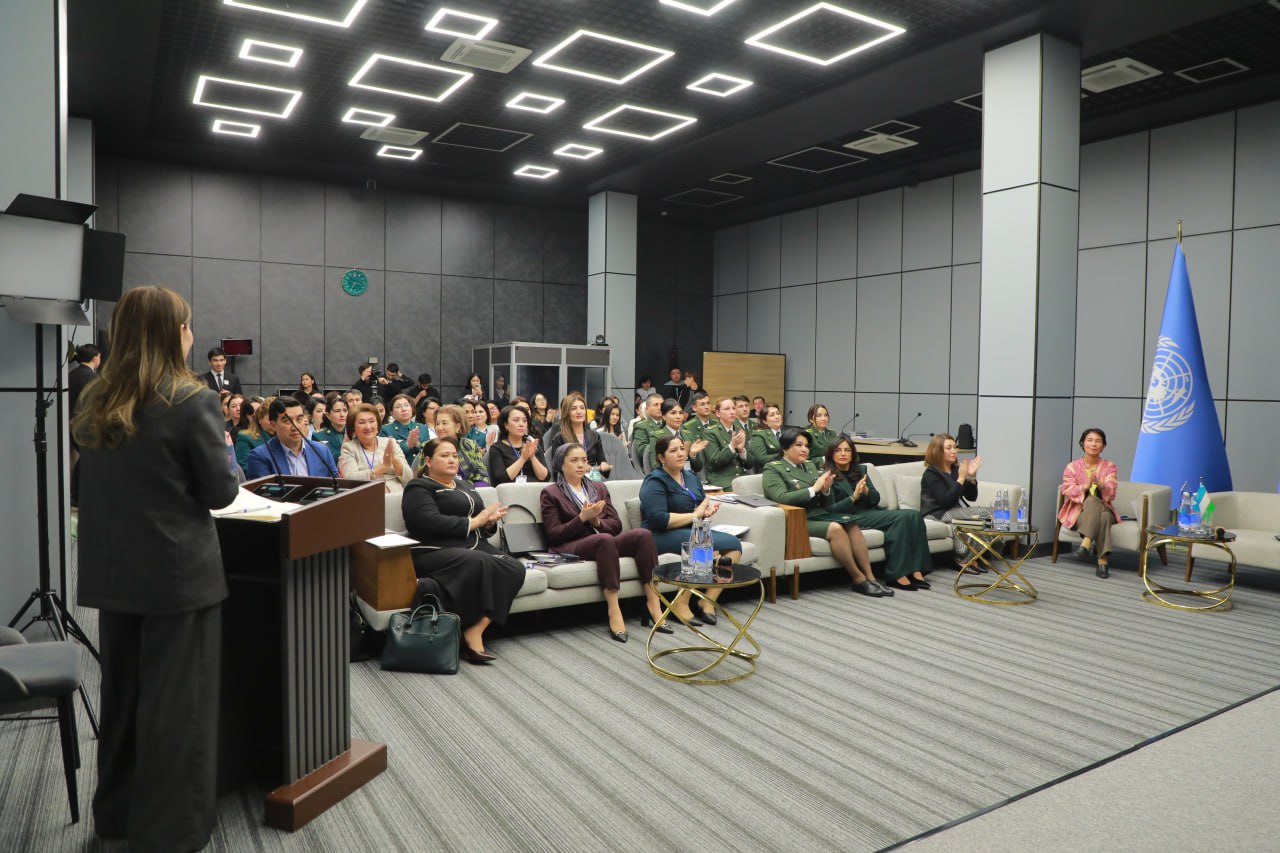
Bringing together an incredible lineup of speakers – including women active in public administration, the judiciary, and STEM, representatives of parliament and government, experts from international organizations, and other leaders from the public and private sector who are driving gender equality forward – the discussion highlighted diverse perspectives and practical solutions for advancing women’s representation. The event provided a platform for Uzbek women active in politics and public administration to share their experiences – their success stories, their challenges, and their strategies for overcoming barriers. It aimed to inspire more women to strive for leadership roles and expand opportunities for gender equality in governance.
Svetlana Artikova, Deputy General Prosecutor of the Republic of Uzbekistan, and Guljamol Shukurova, Head of the Public Relations Sector of the Commissioner under the President of the Republic of Uzbekistan for the Protection of the Rights and Legitimate Interests of Business Entities and Advisor on Information Policy, spoke about the importance of creating an enabling environment for women in management.
Shahlo Turdikulova, Vice-President of the Academy of Sciences of the Republic of Uzbekistan, offered compelling insights into the role of women in science, while Malikakhon Kalandarova, Judge of the Supreme Council of Judges of the Republic of Uzbekistan, highlighted the importance of gender-sensitive legal frameworks for promoting justice and equality.
Through the discussions, it became clear that women’s representation in leadership and politics isn’t just about fairness – it’s about building a stronger society and enhancing the effectiveness of public governance. When women are empowered, everyone benefits.
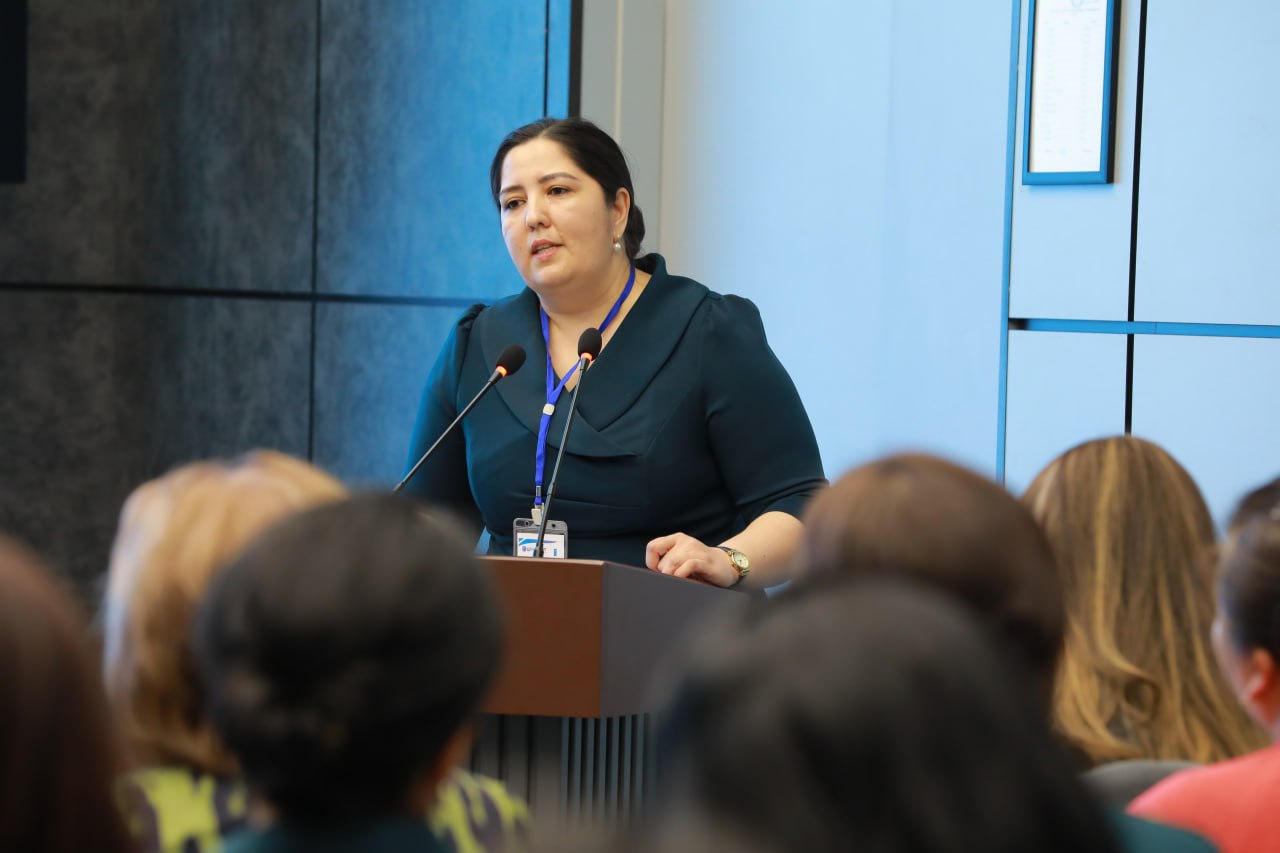
The event reinforced a powerful message: Gender equality is not just an aspiration – it’s an achievable reality when institutions, policies, and individuals actively work together to make it happen. That’s where the Gender Seal comes in: More than just a symbol, it serves as a practical roadmap, guiding policymakers and government officials in dismantling systemic barriers and creating real opportunities for women’s participation in governance.
By institutionalizing gender equality standards, the Gender Seal provides an important framework for aligning national policies with international commitments. For Uzbekistan, it could represent a concrete step toward ensuring lasting gender equity in politics and public administration.
